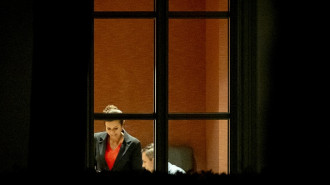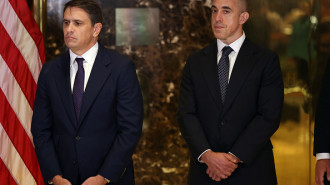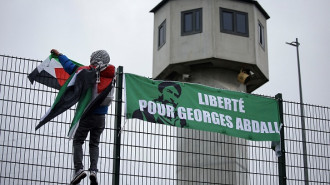Muslim community leaders boycott Australia PM's anti-extremism conference
Australia's prime minister accused senior Muslim community leaders on Wednesday of "continuing down a path of denial" after they refused an invitation to a meeting to discuss Islamic extremism.
Prime Minister Scott Morrison's tweeted response to the Muslim leaders' request for a postponement of Thursday's meeting adds to friction sparked by his proposal last month to move the Australian embassy in Israel from Tel Aviv to Jerusalem.
Morrison has denied a widely held view that the Jerusalem proposal was aimed at domestic political gain amid a debate over levels of Muslim immigration.
"The meeting is going ahead with those who want to deal with this issue seriously rather than look the other way," Morrison said.
"Some have chosen to publicly boycott this meeting. Continuing down a path of denial only lets their communities down," he added.
It was not clear who would attend the meeting representing Muslims, who account for 3 percent of the Australian population, which is majority Christian.
Morrison called the meeting after a Muslim extremist fatally stabbed a man and injured two others in downtown Melbourne on 9 November before police shot the assailant dead.
Some Australian Muslims were critical when Morrison later said that "radical, violent, extremist Islam" posed the greatest threat to Australia's national security.
They felt the wider Muslim community had been blamed when Morrison said Islamic leaders "must be proactive, they must be alert and they must call this out."
Muslims Australia, a national umbrella group, said on Wednesday that Muslim state councils had called for the meeting to be postponed because it had been called in haste, no agenda had been provided, and Morrison had failed to respond to concerns they raised in a 12 November letter.
Grand Mufti Mohammed Abdalla, Australia's most senior Muslim cleric, was among the religious leaders who signed a statement accusing government ministers of inferring that the Muslim community "is collectively culpable for the criminal actions of individuals" in comments that have "alienated large segments of the Muslim community."
The statement was also signed by Ghaith Krayem, chief executive of the Australian Federation of Islamic Councils, who told Australian Broadcasting Corporation on Wednesday that "I would encourage the prime minister not to engage on serious matters on Twitter".
"We are genuinely committed to be engaged with government, but it has to be a genuine process," Krayem said. "The causes of terrorism is a complex issue."







 Follow the Middle East's top stories in English at The New Arab on Google News
Follow the Middle East's top stories in English at The New Arab on Google News


